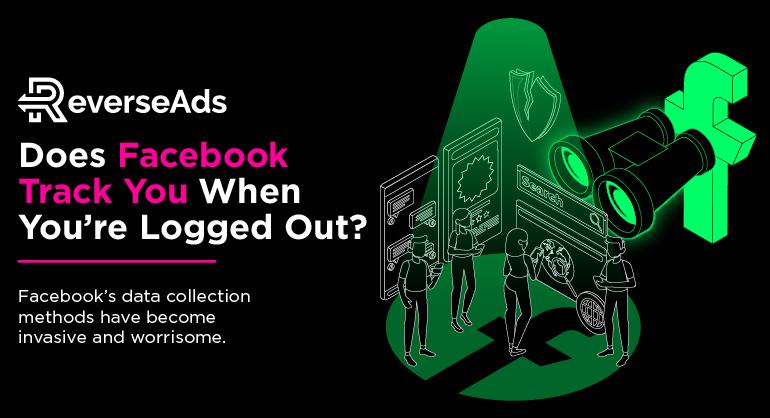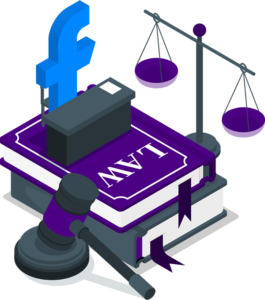Does Facebook Track You When You’re Logged Out?

Don’t feel like reading? Listen to this blog instead
Be aware… when entering the walled gardens of Facebook, almost everything you do is being tracked. For many users of the platform, this isn’t news, however you might be surprised to hear that Facebook is allegedly tracking you everywhere else you go OUTSIDE of the platform. All of this tracking fuels its advertising business, which maintains growth and privacy overreach.
The Tracking of Users
The tracking of users inside a platform is very common, and actually standard practice across most apps and websites. Facebook knows what you’re viewing and who you’re interacting with. The data collected gets quite granular to the point that they know who you are ignoring and who you message most often. While this information can help inform Facebook’s advertising techniques, it is not always tied back to advertising.
The information being tracked is also used for a gauge of user experience and to spot bugs or unwanted behavior on the platform. It can be easy to justify the tracking of users in a platform when the information collected fixes bugs, detects spam, or helps make content recommendations that improve the experience for users. Being that the Facebook umbrella also encompasses Instagram, WhatsApp, and Oculus, these companies all share systems and technology. The result is that behavior and interactions on any one of these platforms can be detected, punished, or rewarded across all platforms.
Where We Must Draw the Line
While it seems permissible for a tech company to track its users in the platform, a line is definitely being crossed as soon as this tracking takes place outside of the platform and on the open web. This is what has gotten Facebook in some trouble lately, and justifiably so. Facebook’s technology is being utilized across millions of websites and apps from other companies. This technology on 3rd party sites is still collecting information that is being used to drive advertising revenue for Facebook.
One of the main reasons that Facebook is so successful is its advertising, which is why the tech giant is always looking for ways to build its knowledge on users. While this knowledge helps inform Facebook of what ads a user will be most receptive to, the methods it uses to acquire this knowledge are invasive and worrisome. The social media monolith is using its presence outside of its own platform to uncover the types of ads that you are most likely to click on, which ultimately allows Facebook to charge more for running them.
This information obtained across the open web is collected in one of three ways: the Facebook Pixel, The Facebook Like button, and the Facebook Share button. The functionality of these three systems is quite similar, as Facebook’s code is inserted into other websites to collect data. The pixel is unique in that it is a small piece of code that is added to a website and works similarly to a cookie. The pixel assigns a unique identifier to every visitor of a website, and collects information on engagement with that website. The pixel then assigns you a Facebook ID that is associated with the devices you use or your Facebook account.

Ongoing Legal Battle
This issue has gotten so out of hand that a $15 billion lawsuit was filed against Facebook, accusing the tech giant of illegally tracking users when they are logged out of the platform. This lawsuit is no joke, as the litigation claims that Facebook is violating a federal law called the Wiretap Act.
The focus of the case is the use of third-party plugins that we outlined above. The plaintiffs in this case are alleging that Facebook is packaging and selling this data that was illegally obtained. The moral and social repercussions of this behavior are extremely damaging, especially as more and more users seek privacy-first solutions.
Facebook users are not the only ones who should be concerned about these developments, and prioritizing solutions that limit Facebook’s overreach. Media buyers must also confront this potential atrocity, as advertising is the revenue channel that allows Facebook to flourish. As cookies come to an end, and programmatic slowly dies, businesses and media buyers should be looking to protect user data by incorporating search ad alternatives that prioritize user privacy and data security.





